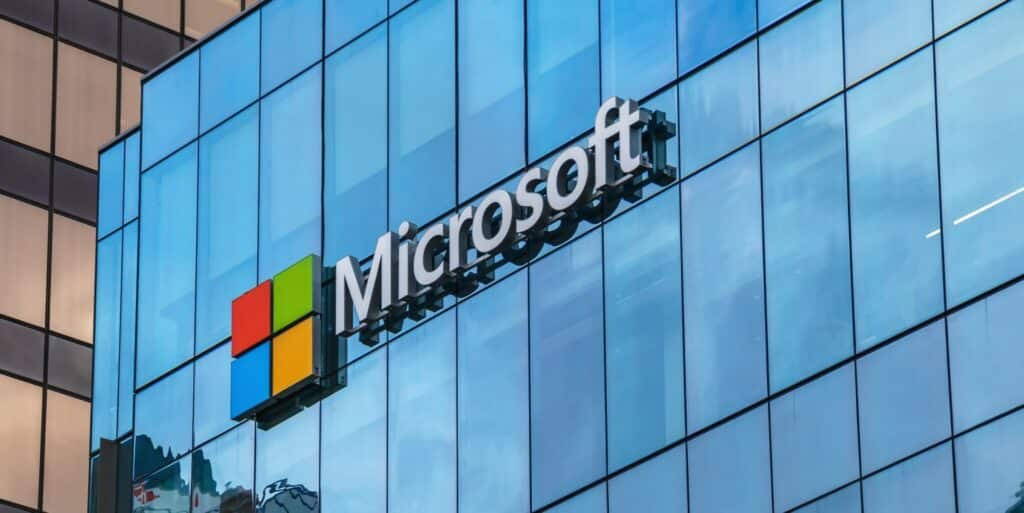Software piracy has been a persistent issue for tech giants like Microsoft, whose flagship products, the Windows operating system and Office suite, are among the most pirated software globally. To address this challenge, Microsoft has unveiled Argus, a blockchain-based system aimed at revolutionizing anti-piracy mechanisms through transparency and trustless incentives.
This article explores Argus, its innovative watermarking method, and the broader implications for intellectual property (IP) protection.
What is Argus?
Argus, developed in collaboration with researchers from Alibaba and Carnegie Mellon University, is a blockchain-powered incentive system designed to combat piracy.
Key Features of Argus
- Blockchain Integration: Built on the Ethereum blockchain, Argus leverages transparency and decentralization to create a trustless reporting system.
- Anonymous Reporting: Protects the identity of whistleblowers while ensuring the integrity of piracy reports.
- Transparency: Ensures that all actions are recorded on the blockchain, fostering trust and accountability.
How Argus Works
Watermarking and Evidence Tracking
Argus uses a watermarking method to backtrace pirated content to its source.
- Proof of Leaking:
- When a user reports pirated content, Argus embeds an information-hiding process, creating unique evidence tied to the leaked material.
- Only the original possessor of the content can generate such evidence, preventing false reporting.
- Prevention of Duplicate Reports: The system includes mechanisms to block users from submitting the same report under multiple aliases, ensuring efficiency and credibility.
Reward System
Argus incentivizes individuals to report piracy by offering transparent, blockchain-based rewards.
Advantages of Argus
1. Enhanced Transparency
Using the Ethereum blockchain ensures a fully transparent system, where all reports and transactions are publicly verifiable.
2. Trustless System
Argus eliminates the need for intermediaries, relying solely on blockchain technology to validate reports and manage rewards.
3. Effective IP Protection
By backtracing pirated content, Argus empowers rights holders to take actionable steps against piracy, safeguarding intellectual property.
4. Scalability and Practicality
The study highlights Argus’s ability to handle real-world anti-piracy operations effectively, offering a scalable solution for global implementation.
Broader Implications for Intellectual Property Protection
Tech Industry’s Growing Focus on IP
The rise of digital piracy has prompted IT firms to adopt advanced solutions for IP protection.
- Blockchain Adoption:
- Microsoft’s Argus marks a significant step in leveraging blockchain for anti-piracy.
- Other companies, like Tech Mahindra, have launched blockchain-based rights management platforms, underscoring the industry’s commitment to IP security.
Role in Media and Entertainment
Blockchain-based systems like Argus could extend beyond software to combat piracy in media and entertainment, offering tools for secure digital rights management.
Challenges and Future Prospects
Technical Challenges
- Integrating Argus with existing anti-piracy frameworks may require significant technical adjustments.
- High transaction fees on Ethereum could impact the system’s scalability.
Adoption Hurdles
- Rights holders and companies must be willing to embrace blockchain technology.
- Educating stakeholders on the benefits of decentralized solutions will be crucial.
Future Potential
- Expanding Argus’s use cases to other industries, such as media, education, and publishing, could transform how piracy is addressed globally.
FAQs
What is Argus?
Argus is a blockchain-based anti-piracy system developed by Microsoft, leveraging Ethereum to create a transparent and trustless reporting mechanism.
How does Argus combat piracy?
Argus uses a watermarking method to backtrace pirated content to its source and incentivizes anonymous reporting with blockchain-based rewards.
Why is blockchain used in Argus?
Blockchain ensures transparency, accountability, and decentralization, making Argus a trustless system for combating piracy.
What industries can benefit from Argus?
While initially focused on software piracy, Argus has potential applications in media, entertainment, publishing, and education.
What are the challenges in implementing Argus?
Challenges include integrating the system with existing frameworks, addressing high Ethereum transaction fees, and driving adoption among rights holders.
How does Argus differ from traditional anti-piracy methods?
Traditional methods rely on centralized authorities, while Argus uses blockchain to ensure transparency, decentralization, and enhanced security.
Conclusion
Microsoft’s Argus represents a groundbreaking approach to tackling piracy, leveraging blockchain technology to foster transparency and incentivize reporting. By addressing long-standing challenges in IP protection, Argus has the potential to reshape the fight against digital piracy across industries.
As blockchain adoption grows, systems like Argus could play a pivotal role in safeguarding intellectual property and promoting a fairer, more secure digital economy.
To learn more about the innovative startups shaping the future of the crypto industry, explore our article on latest news, where we delve into the most promising ventures and their potential to disrupt traditional industries.
Disclaimer: The information provided is not trading advice, Bitcoinworld.co.in holds no liability for any investments made based on the information provided on this page. We strongly recommend independent research and/or consultation with a qualified professional before making any investment decisions.




